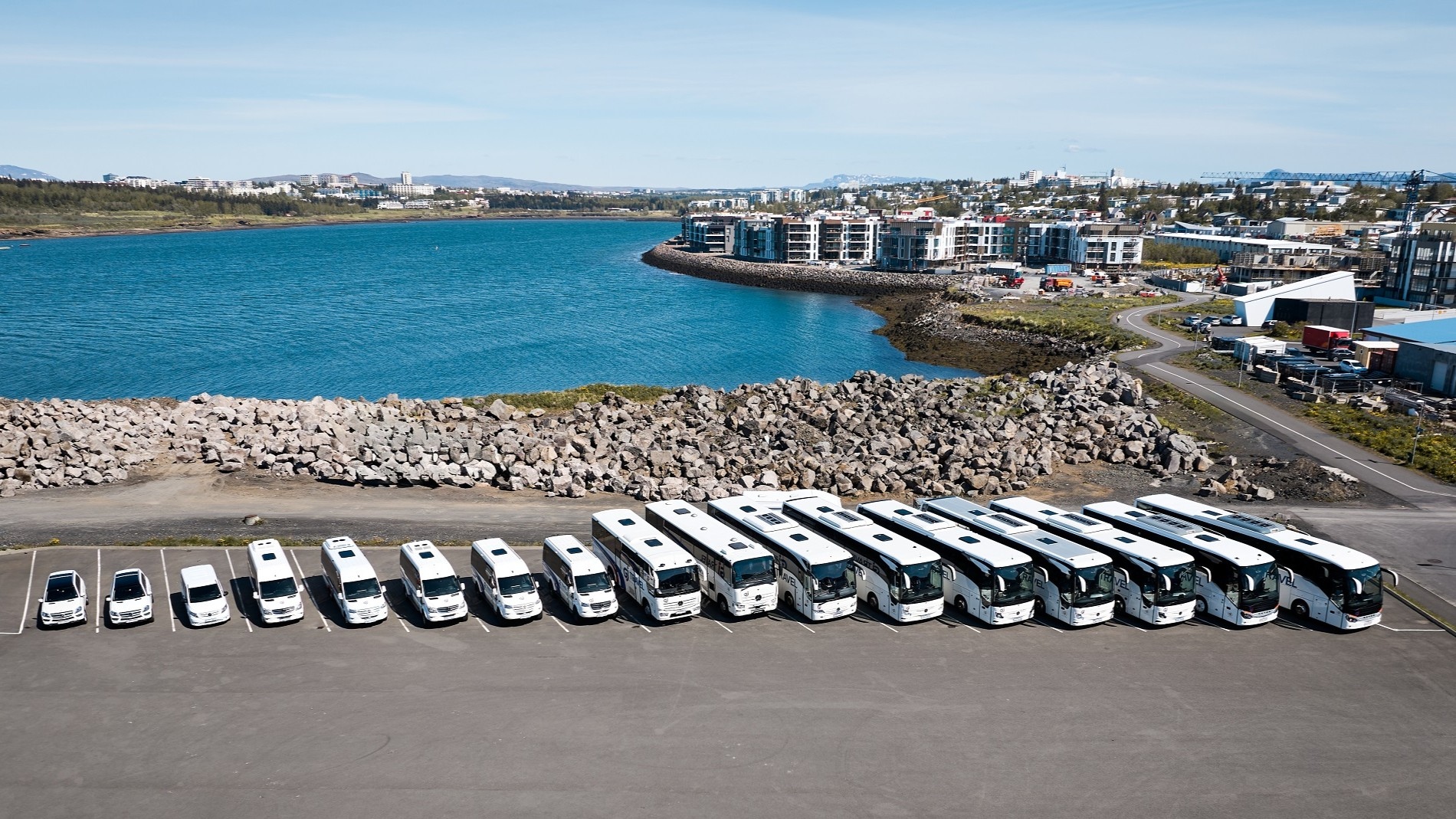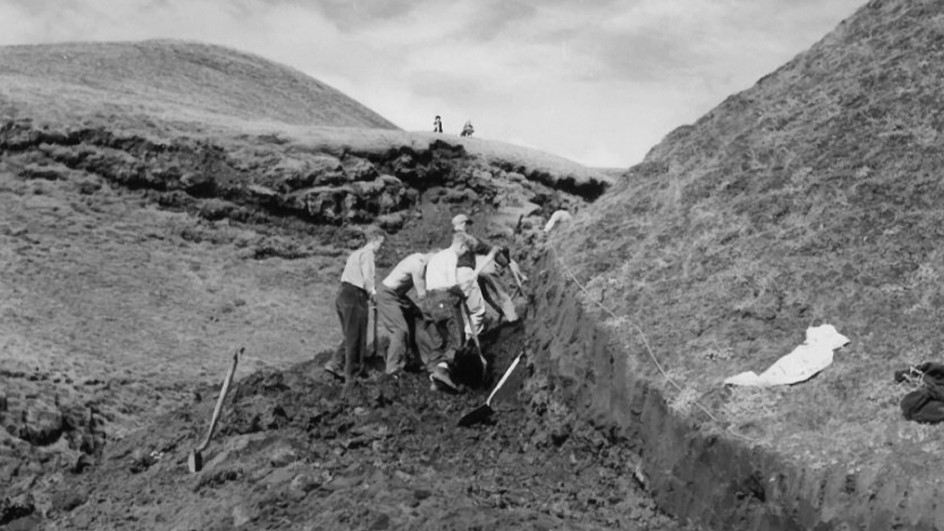Iceland: Sustainability no longer a choice but a necessity
Iceland is seen as an environmentally friendly country in many ways, but sustainability is still a relatively new concept – even within the tourism industry. Interest is now growing, especially as customers increasingly demand responsible choices.
María Ester Guðjónsdóttir is an expert in tourism and sustainability. As an independent advisor and auditor, she works with numerous tourism companies to help them operate more sustainably.
She notes that sustainability encompasses a wide range of issues, particularly within such a diverse industry as tourism.
 “Overall, for most of the smaller companies, expenses and time are the biggest challenges. Making sustainability plans costs a lot of time and money.
“Overall, for most of the smaller companies, expenses and time are the biggest challenges. Making sustainability plans costs a lot of time and money.
“These plans are a fairly new thing in Iceland, and a lot of smaller companies don’t believe they have the time and resources to make them.”
Guðjónsdóttir says that during her visits, she sees a lot of companies seeking a sustainability certification that are doing many good things, and they are in many ways sustainable.
“The problem is that they don’t have anything in writing, and we can’t start a sustainability audit until we have that.
“Another problem is that Iceland does not have many companies that are licenced to conduct such audits.
“And the third issue is that smaller companies, with maybe around six employees, don’t realise that being small doesn’t exclude them from a sustainability certificate. This applies especially for companies outside the capital area.”
Guðjónsdóttir says, however, that the largest companies are closer to being sustainable, and many of them, like all hotel chains in Iceland, have sustainability certification.
“Most of the companies have a dedicated employee who handles sustainability matters.”
Many do not know what comes with sustainability
Guðjónsdóttir says that it is quite common among tourism companies that they do not know what this is really about.
“They just believe that it’s not necessary for them to think about it because it’s not important, and it costs a lot. But many of the companies that contact me simply want to know what this is all about.”
She adds that many of them think that this mainly means recycling, not using disposable items or plastic and thinking about nature.
“What many of them don’t know is that sustainability is also about staff welfare, giving back to the community and so many more things.
“They don’t even realise that if they save energy and water, for example, they’re saving money. Many just think that there is plenty of energy and water in Iceland.
“But this has a snowball effect. For example, putting up a sign in a hotel room saying that the towels won’t be taken after first use saves electricity, water and chemicals for washing. This is just one example of a small thing that reduces use and cost in many areas.”
Even though the basis for sustainability is the same in every company, which measures they must take vary – depending on the nature of the company.
“Transport companies think about more environmentally friendly cars and buses for their customers, while hotels think mostly about these things for their staff.
“Travel agents and others offering nature excursions think about treating nature well, while whale watching companies, for instance, think about animal welfare."
Guðjónsdóttir says this is also about what message they want to send to their customers.
“Most people say it goes without saying that when you visit a tourist attraction, you keep to the paths and you throw rubbish in bins. But then the question is: Are there walking paths or bins? If there are no bins, the tour operators have to tell their customers to take the rubbish with them.”
All this becomes a bigger challenge with increasing numbers of tourists.
Need more from the state
And in that regard, Guðjónsdóttir says, more state intervention is necessary.
“For example, there’s no limit to how many people can visit Þingvellir. We can of course control it, but it’s not up to the tour operator to set that limit. At the same time, people want a unique experience which means you can’t have too many people there.”
The Icelandic authorities have, however, created the Tourism Skill Centre, which Guðjónsdóttir says is a sign of increased awareness within the government.
“The centre’s staff are now travelling around the country introducing sustainability and providing training on the subject. But it needs to be better communicated.
The centre is now launching sustainability courses and there are grants available for taking this kind of training. I’ve heard that this will support the companies who want to take part in that.”
And in general, Icelandic companies are becoming increasingly aware of the importance of sustainability, also for their business’ health.
“A recent poll from booking.com suggests that tourists want the company they’re doing business with to be sustainable.
“So I think the pressure is coming both from the top and from the customers, so we can’t lag behind when it comes to sustainability. This is not a choice anymore, this is a necessity that all of us have to work on.”
In the near future, Guðjónsdóttir believes that the companies will have to focus more on sustainability.
“There has been increased pressure from foreign travel agencies that are certified. The agents in Iceland who are certified are obliged to prioritise suppliers who either are certified or have a sustainability policy of some sort. So if the companies want as much business as possible, they have to think about this.”
Sustainable for over 90 years
It could be argued that the transport company GJ Travel has been doing this more or less since it was founded in 1931.
 “The entrepreneur Guðmundur Jónasson put great emphasis on improving conditions, whether it was by constructing roads or cultivating the land. This care for the land and community has continued down generations.
“The entrepreneur Guðmundur Jónasson put great emphasis on improving conditions, whether it was by constructing roads or cultivating the land. This care for the land and community has continued down generations.
“Today, GJ Travel is still a family-run business owned by the third generation, and we continue to build on that legacy,” Sif Helgadóttir, GJ Travel’s marketing director, says.
The company works systematically, for example, on reducing its environmental footprint.
“We operate buses that meet EURO 6 environmental requirements and we have developed a sustainability strategy in collaboration with our employees. And we have always selected partners from all over the country to make sure that the benefits flow directly to the society.”

GJ Travel offers large and small transport services for both the local population and the tourism industry in Iceland. Photo: Fusion Media
The company is a founding member of key institutions within tourism, like The Icelandic Travel Industry Association, which protects the common interests of the tourism companies and the Iceland Tourism Cluster which focuses on sustainability, innovation and travel tech.
“We also take part in the CE4RT project on circular economy in tourism and are pioneers in the SoGreen innovation project – connecting climate and equality,” Helgadóttir says.
The company also does its share in giving back to the community.
“We helped the Red Cross transport the first refugees in Iceland’s history, and we’ve worked with the Iceland Glaciological Society since its inception.
“We support rescue teams – some of the owners are members themselves – we have driven senior citizens to grocery stores in the capital area for decades and driven for The Icelandic Football Federation since before it was formally founded."
Always looking for responsible partners
According to Helgadóttir, the main benefit for the company is ensuring that its growth aligns with its core values.
“It creates stability, builds trust, and establishes us as a reliable partner for communities, as well as for both domestic and international collaborators and customers.

Road construction in Eldgjá in 1954, built by Guðmundur Jónasson and his employees. Photo: Hörður Þórarinsson.
“This focus is reinforced through measurable actions – it serves as a constant reminder to improve. It's a way to strengthen our business while also leaving the environment and our operations in better shape for future generations.”
Helgadóttir says travel agencies and partners are increasingly looking for responsible partners.
“We recently received the 2025 Responsible Tourism Award. It is not only an honour, but also an acknowledgement that influences collaboration, bookings and future plans.”
GJ Travel is one of almost 200 companies participating in the project Responsible Tourism, supervised by the Icelandic Tourism Cluster.
The aim is to promote sustainability and social responsibility within the Icelandic tourism industry, with emphasis on four things: respect for nature, safety and courtesy in dealing with tourists, employee rights and positive impact on the local community. The aim is to make Iceland a leader in sustainability by 2030.
 Follow us on Facebook
Follow us on Facebook
